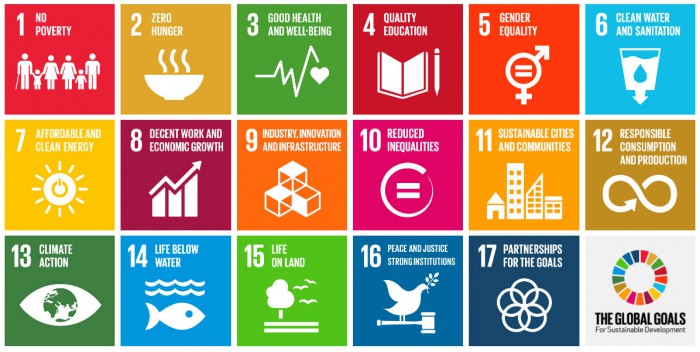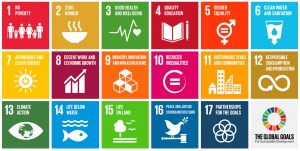2nd October 2015 Canberra, Australia
Historic global agreement on sustainable development


Through my work in climate diplomacy, I’ve learned that it’s often very difficult to get countries to agree on things. So when they do, it’s cause for celebration. Especially when they agree on important things, like an ambitious and hopeful vision of what the world should look like 15 years from now.
On 25 September this year 193 countries agreed on the Sustainable Development Goals. These replace the Millennium Development Goals, which were adopted in 2000 and expire at the end of this year.
The new global goals are broad: they cover the same areas as the Millennium Development Goals (ending poverty and hunger, gender equality) but add in new areas that are also important to sustainable development, like clean energy, climate action, reducing inequality, peace and justice. There are 17 goals in total, and under the goals sit 169 targets, which give some concrete things for the world to aim for in 2030.
The Sustainable Development Goals are not just designed to apply to developing countries, they’re intended to be useful all around the world. So all countries, including the UK and Australia, will need to think about implementing the goals at home, as well as focusing their overseas development assistance on implementing them in developing countries. I think it’s interesting that they’re already being used by companies as well as countries: last week 300 CEOs, including Facebook, signed up to help implement some of the goals through their business practices. The process of getting to the goals was a consultative one too, including more than 7.7 million people taking an online survey about what things matter most to them. I hope that the wide involvement of people in building the goals means that they will be widely shared and used.
The UK played a strong role in getting agreement on these goals, as did Australia. I hope they’ll be a positive force in shaping our activities, both at home and in what we do internationally. There’s still lots of important work to be done in how to measure and implement the goals, but I for one am celebrating the success of global diplomacy that has got us this far.